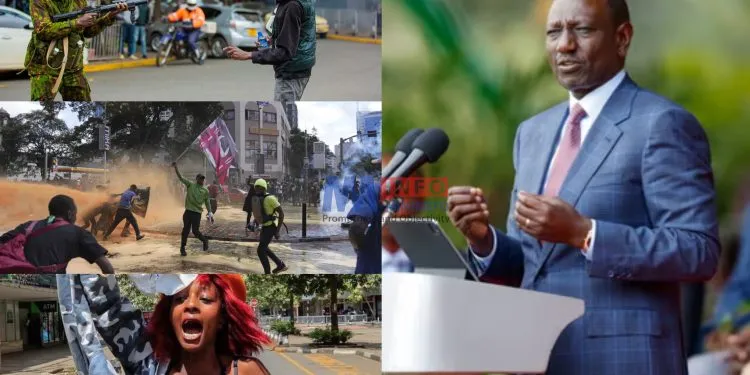Kenya’s President William Ruto has dismissed all his ministers and the attorney-general with “immediate effect.” This sweeping action follows a wave of deadly protests that recently compelled the government to withdraw an unpopular tax bill.
President Ruto, who has been in office for less than two years, stated that the decision came after “reflection, listening to Kenyans, and after holistic appraisal of my cabinet.” He assured the nation that government operations would continue uninterrupted under the supervision of senior civil servants while he consulted widely to form a new, broad-based government.
The dissolution does not extend to the deputy president, who cannot legally be fired, nor to the prime cabinet secretary, who also serves as the foreign affairs minister.
Ruto emphasized his intention to engage “across different sectors and political formations and other Kenyans, both in public and private” to establish a new government, though he did not specify a timeline for this process.
This move is historic, marking the first time an entire cabinet has been dissolved in Kenya since 2005, when then-President Mwai Kibaki took similar action following a constitutional referendum defeat. The president’s bold decision underscores the intense pressure he faces from Kenyan citizens, who have been persistently protesting for greater accountability and transparency from their leaders.
The protests, which have occasionally turned violent, erupted over the government’s tax hikes and perceived corruption within the administration. Last Thursday, President Ruto chaired what one local newspaper dubbed the “last supper” for the outgoing ministers, three of whom had relinquished their parliamentary seats to join the cabinet nearly two years ago.
One of the dismissed ministers, former Defence Minister Aden Duale, responded promptly on X (formerly Twitter), expressing gratitude to the president and the people of Kenya for the opportunity to serve. “I will forever be indebted to him and the people of Kenya for this opportunity to serve,” Duale said.
Corruption scandals have plagued several ministries, leading to the suspension of senior government officials. Although President Ruto previously defended his ministers, citing a lack of evidence to justify their dismissal, the ongoing public unrest and recent protests have seemingly forced his hand.
Last October, a mini-cabinet reshuffle affected at least eight ministers, indicating the president’s ongoing attempts to address governance issues. However, the complete dissolution of the cabinet signals a more profound crisis and a response to mounting public dissatisfaction.
In a bid to address the economic discontent, President Ruto recently announced several austerity measures, including a freeze on proposed pay rises for cabinet members and parliamentarians, following a significant public outcry.
As Kenya awaits the announcement of a new government, the president’s actions highlight the formidable influence of public opinion and the power of protests in shaping the country’s political landscape.



